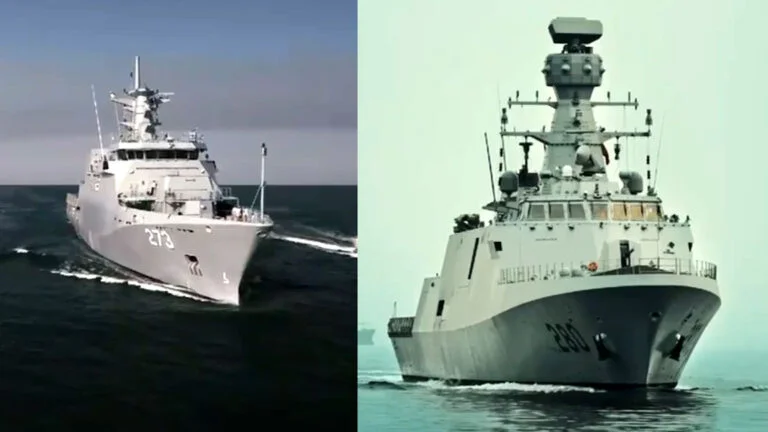RAWALPINDI, Sep 03: On Defence Day, the Pakistan Navy will induct two newly built ships, which are each an offshore patrol vessel, into the national fleet, marking a significant increase in naval defense capabilities.
Pakistan Navy Ship (PNS) Babar and PNS Hunain will join the fleet of Pakistan Navy simultaneously, an Inter Services Public Relations (ISPR) news release said.
Pakistan Navy Inducts PNS Babur
The Pakistan Navy will officially welcome PNS Babur, the first Miljum/Babar class ship built in Turkiye.
PNS Hunain, the third offshore patrol vessel built in Romania, will also join the Pakistan Navy fleet.
The construction of PNS Babur started on 4th June 2020. They launched PNS Babur on 15th August 2021 and commissioned it on 23rd September 2023.
The Pakistan Navy is inducting four Babur class ships equipped with a vertical launching system.
Under the Pak-Turkiye agreement, builders in Istanbul and Karachi are constructing two ships each.
Three other Babur class ships PNS Badr, Tariq and Khyber are currently in various stages of preparation.
The Babur class ship is capable of fighting on surface, underwater and air simultaneously. The 2888-tonne Babar-class ship can counter air threats by vertical launch system.
Also See: Indian Coast Guard Searches for Crew After Helicopter Crash
The Induction of PNS Hunain
The third Yarmouk-class offshore patrol vessel (OPV) 2600 for the Pakistan Navy has also been built at Galati Shipyard in Romania.
The last two OPVs have a displacement of 2600 tons compared to the first two ships of the Yarmouk class.
The Yarmouk class ships have the status of Guided Missile Corvettes in the Pakistan Navy due to their unmatched capabilities.
All ships of the Yarmouk class, including PNS Hunain, are suitable for surface and air warfare as well as search and rescue operations. The 98 meter long PNS Haneen has a speed of around 24 knots.
With the help of vertical launching system, PNS Hunain can launch surface-to-air missiles. Along with the 76 mm main
gun, PNS Haneen is also equipped with two 20 mm secondary guns.
All four ships of the Yarmouk class have been attributed to important battles in Islamic history.
After PNS Yarmouk and Tabuk, PNS Hunain will also be the best addition to the strength and capabilities of Pakistan Navy.
PNS Yamama, the fourth and final vessel of the Yarmouk class, is undergoing completion after its launch in February this year.
The Babur class ships are the epitome of Pakistan-Turkiye defence cooperation. And there is evidence of a defense partnership between the two countries.
This news is sourced from APP and is intended for informational purposes only.


![Afghan men search for victims after a Pakistani air strike hit a residential area in the Girdi Kas village, Nangarhar province on February 22, 2026. [Aimal Zahir/AFP/Getty Images]](https://southasiatimes.org/wp-content/uploads/2026/02/gettyimages-2262391441.webp)



